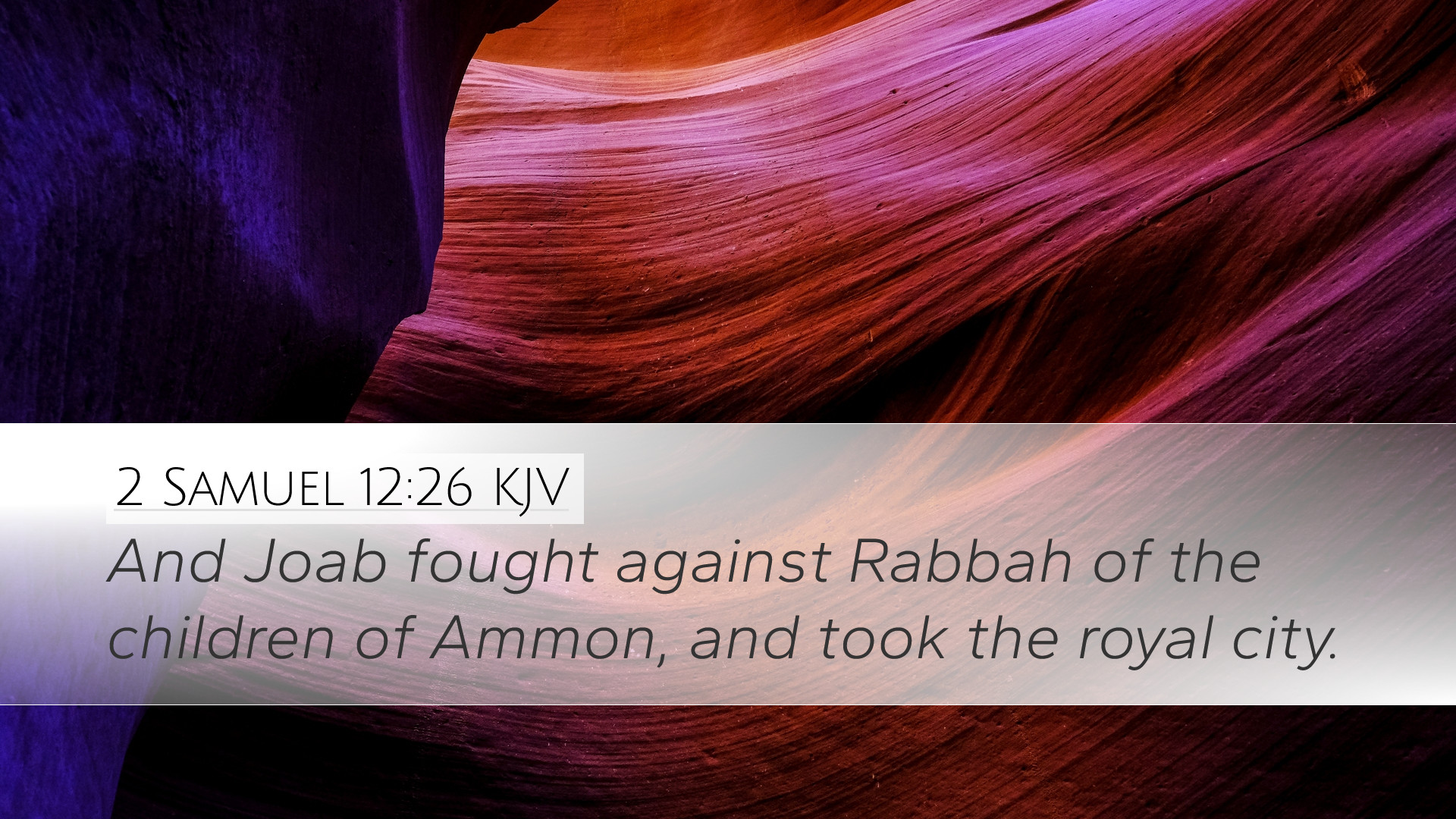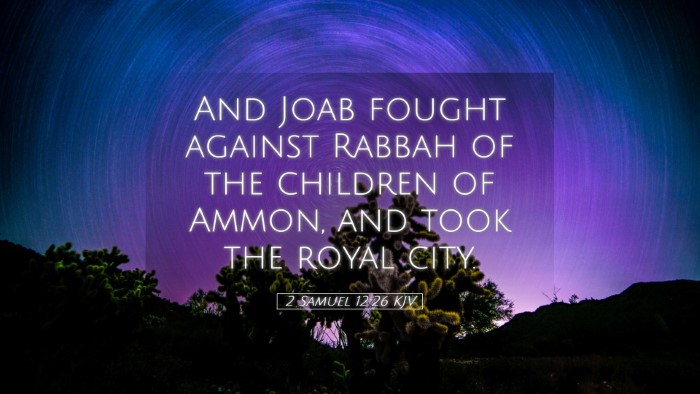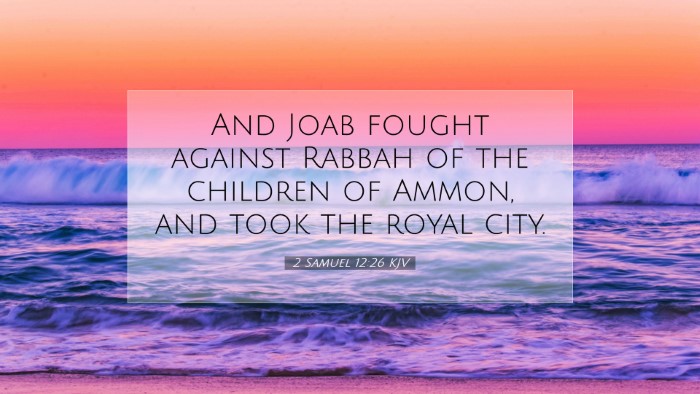Old Testament
Genesis Exodus Leviticus Numbers Deuteronomy Joshua Judges Ruth 1 Samuel 2 Samuel 1 Kings 2 Kings 1 Chronicles 2 Chronicles Ezra Nehemiah Esther Job Psalms Proverbs Ecclesiastes Song of Solomon Isaiah Jeremiah Lamentations Ezekiel Daniel Hosea Joel Amos Obadiah Jonah Micah Nahum Habakkuk Zephaniah Haggai Zechariah MalachiVerse
2 Samuel 12:1 2 Samuel 12:2 2 Samuel 12:3 2 Samuel 12:4 2 Samuel 12:5 2 Samuel 12:6 2 Samuel 12:7 2 Samuel 12:8 2 Samuel 12:9 2 Samuel 12:10 2 Samuel 12:11 2 Samuel 12:12 2 Samuel 12:13 2 Samuel 12:14 2 Samuel 12:15 2 Samuel 12:16 2 Samuel 12:17 2 Samuel 12:18 2 Samuel 12:19 2 Samuel 12:20 2 Samuel 12:21 2 Samuel 12:22 2 Samuel 12:23 2 Samuel 12:24 2 Samuel 12:25 2 Samuel 12:26 2 Samuel 12:27 2 Samuel 12:28 2 Samuel 12:29 2 Samuel 12:30 2 Samuel 12:31

